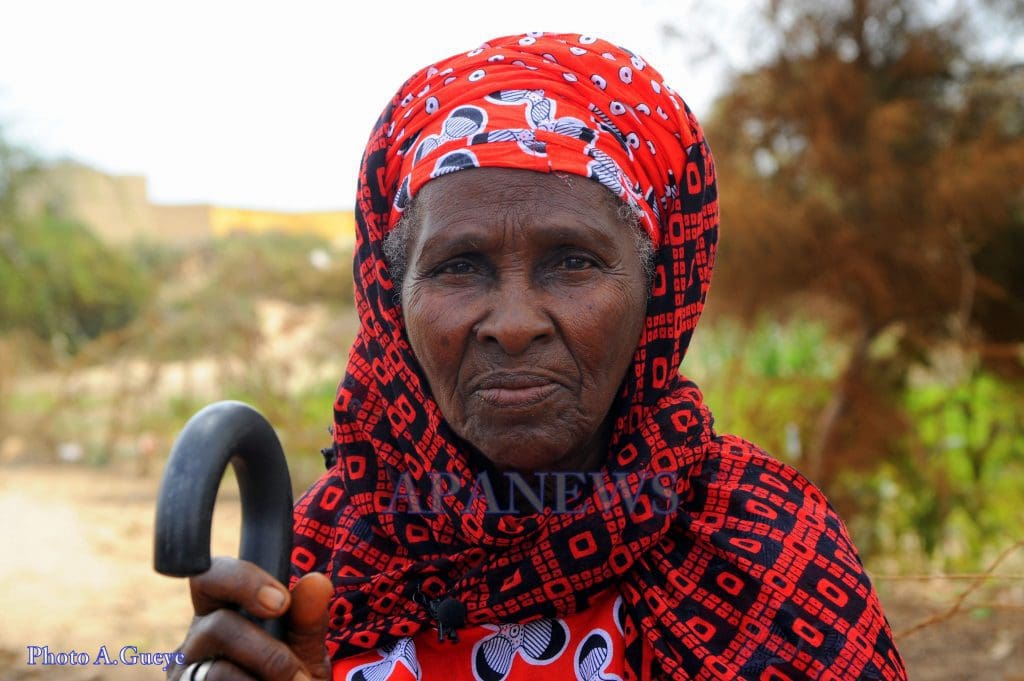The frail Penda Bâ has an unmistakably piercing look. At first sight the 70-year old, seems to pass off as any elderly person living quietly in her old age. But when she speaks with her wheezing voice we immediately notice a health problem.
The wheezing in her voice is a sign of a respiratory disease from which she has been suffering since the 1980s.
At the time, Penda grew green beans in a garden in her village of Khondio and after each harvest she would sell her produce at the market in Mboro, a nearby commune.
She left Khondio one day to engage in her trade, walking along the way and inadvertently on an acidic road where the Chemical Industry Plant (ICS) was located.
“I inhaled a significant amount of acid. Shaken by a coughing fit, I was having trouble breathing. At the time, I vomited a white liquid,” said the old woman, pointing out that it was by wanting to respond to passers-by who wanted to know what was happening to her that she realized that no sound was coming out of her mouth.
From feeling weary, she began to respond “with gestures.”
Through the care she continues to take, Penda has regained her voice even if it is a wheezing sound, the symptom of a chest disease.
When they were informed of the old woman’s plight, Senegal’s Chemical Industry Plant (ICS) gave her CFA 50,000 as compensation.
When asked about the case of old Penda, the head nurse of Khondio health post, Amadou Bâ, said he could not jump into a hasty conclusion, on the grounds that there is no serious study blaming the disease afflicting the seventy-year-old and similar cases identified in Khondio on the passage of ICS vehicles or the inhalation of their waste by villagers.
“There are certainly respiratory diseases, but they are specified at times. And they’re really not complicated respiratory diseases. We have never had cases that required evacuations,” the doctor said, recalling that the Khondio health post where he has been working for almost two years was built in 2017 by the ICS.
The remunerations and the welfare of health personnel come from an NGO.
Despite this social assistance, chemist Alpha Ousmane Touré, quoted by journalist Alioune Badara Diatta in his award-winning investigation by the NGO OXFAM, is cautious about fluosilicic acid or fluo juice (H2SiF6) spilled on the Khondio Sea by ICS activities and warned that it is a dangerous chemical.
“The mixture of fluo juice with sodium chloride in the sea produces hydrochloric acid, a product that is not good for the marine life and even for the human population,” said Mr. Touré, a research professor in the Chemical Engineering Department at the Ecole supérieure polytechnique de Dakar.
“The fish we eat will feed on phytoplankton contaminated by hydrochloric acid. In the long run, human consumption of these fish causes diseases such as dental or bone fluorosis,” he explained.
ODL/cat/lb/as/APA


